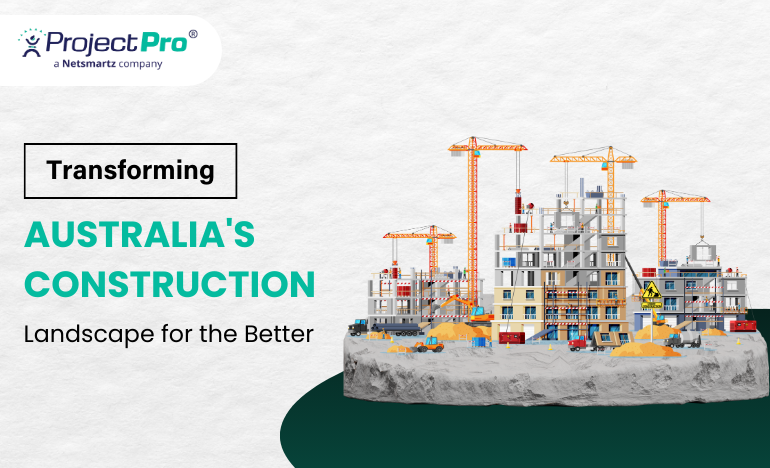How to Execute KPIs with ProjectPro for your Construction Team?

Setting up powerful and realistic goals to run your construction business successfully is crucial. It provides focus, keeps employees motivated, and sets targets for everyone to work towards together. However, what does goal setting look like?
For developing realistic construction business goals, you need to include stakeholder buy-ins from owners down to mid-management and field workers. That's because change management can roll across the entire organization and entail a collective vision and a conveyed purpose.
Let's get to the why first with your OKR, then construct the how's with KPIs:
Why set OKRs and KPIs?
If you are new to the term OKRs, it stands for Objective and Key Results, and KPI stands for Key Performance Indicators. KPIs are used as a success measuring strategy that helps to keep track of targets efficiently. However, measuring success without a goal is like finding a needle in a sack.
Getting flexible with performance management can work for a short period, but at some point, your misaligned goals will catch up with you and alarm you to undercut your bottom line.
De-risking begins with shielding your base on the operational, financial, and other management levels. Usually, financial KPIs give you a holistic view.
Still, it would help if you had acceptable levels of the component to understand how your construction business piles up against your rivals, industry, and the market as a whole.
Experts suggest that a construction company expects 80% fewer RFIs on a project and can estimate the few hours that are needed to manage the project. This helps to solve efficiency loopholes, attain concrete results, and attract more clients.
How can you set construction KPIs?
Always keep in mind that your goals should be SMART. What does that mean? Here's a breakdown for you:
-
Specific: Know what you have to accomplish and how?
-
Measurable: What data will you use to evaluate your success??
-
Achievable: Are your goals realistic?
-
Relevant: How important are results for your business?
-
Time: Set a specific period for accomplishing these goals
Unfortunately, there's no one-size-fits-all when starting with setting up your KPIs to align with your growth strategies. To put this across in a simple way, benchmarking is unique for residential builders and commercial contractors.
How does it differ? Residential builders often use integrated project delivery methods, whereas commercial contractors use the standard design-bid-build model.
Moreover, the challenges may also differ for every contractor. Usually, comparing two different industries altogether is what puts construction contractors in a blind spot. And this is what you need to address to set KPIs.
1. Execute KPIs with the Latest Technology
Search for construction technology, and you'll be overwhelmed. Presently, data saturation has become prevalent. Whether it is BIM models, mobile apps, digital twins, or any other construction technology, data overload can take a toll on your construction project.
And when contractors choose the tools first before establishing the strategic direction, more confusion happens. This leads to failed investments, scrapped digital transformation, zero buy-ins, and financial errors.
So how do you make these massive construction datasets significant in predicting favorable results? With the data mining, we go back to square one.
2. Integrate, Integrate & Integrate
For KPIs to perform, construction management platforms can be coupled with business intelligence tools and partner integrations to get the most out of de-siloed workflows.
However, the schedule alone explains the grounds for a delay in any construction project. Delays ensue because of the discovery of a design drawing blunder, late material deliveries, less availability of trained field labor, safety situations, and more.
Integrations and custom reporting services twist pieces of data into accurate key performance indicators usable for future decision-making. Data collected can assist managers thoroughly. As per industry leaders, KPI measures indicate if their projects will stay on schedule and mitigate possible risks and delays as the project advances.
3. Improves Scalability
To improve scalability, we have listed below five KPIs that you can put into action with immediate effect on your construction project:
-
Understand your numbers in real-time data sync and use cloud-based technologies like ProjectPro.
-
Attract stakeholders, and deploy the OKR roadmap with critical teams initially.
-
Keep track, measure, and analyze feedback from employees.
-
Take into consideration the previous data and pivot KPIs in that way.
Bottom Line
Is your construction team on track with your goals and meeting the KPIs? ProjectPro lets you leverage exceptional features and capabilities. Schedule a demo today.




.jpg)


